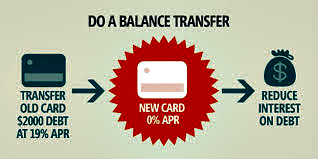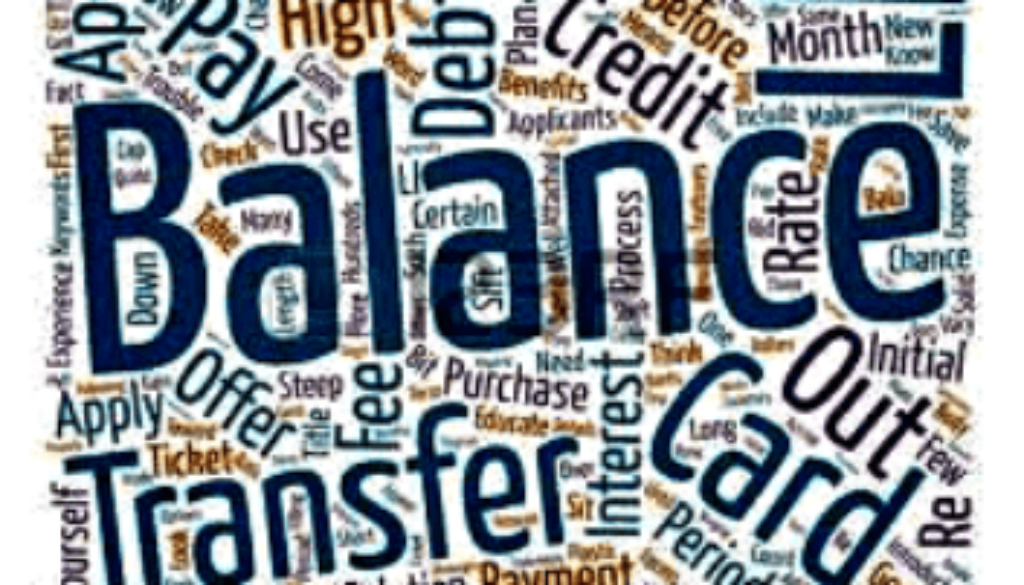Deciphering Balance Transfer Offers
Have you received “debt mail” from banks with those checks enclosed? They offer the opportunity to make purchases or transfer higher interest rate balances to a different bank’s credit card. For me, those offers use to go in recycle bin (after shredding of course). In fact, there was a time I called the banks that had sent them and told them don’t send those checks to my house. They were killing trees unnecessarily because I was never going to use. It was not until a co-worker mentioned how he was thinking to use towards rental real estate purchase that I got an idea how I could use for options trading. I then needed to start out deciphering balance transfer offers.
Ever open to trying something new, if it made sense, and just flushing out the opportunity, I set out to experiment. Could I use money from a balance transfer for options trading? Quite simply, the answer is yes! I explain with more detail in, “Evaluating Chase Balance Transfer Check Strategy”. The scope of this post is deciphering balance transfer check offers in degrees of good and great usefulness. I have had 5 opportunities to evaluate and apply for. I used 3, but made out better on the 2 offers by Barclaycard than Citi by comparison.
Based upon my reason for use, I should have actually chosen a different offer from USAA instead of Citi’s. USAA’s offer transaction fee would have been $75, unlike the $759.85 for Citi’s. The mistake became more glaring that I missed the fine print for Citi’s transactions fee of 5%. Thus, the reason for this post was inspired to bring these fine details to your attention when doing balance transfer.
Focus On These Components
The components of balance transfer to focus on are:
- Credit Line Available
- Promotional APR’s and Time-frame
- Transaction Fee
- Minimum Payment
- Amount of Balance Transfer
- Reason for Use

— Credit Line Available (minus transaction fee) is the max amount you can transfer from another credit cards balance to the new credit card.
— Promotional APR and Time-frame is the interest rate on the balance transferred for some specifically defined period of time.
— Transaction fee is the amount charged by the lender up front for the privilege to transfer a balance. This cost is rolled into the overall balance.
— Minimum payment is the bare minimum amount you must pay on the balance to be in compliance with the terms of the agreement. This information isn’t printed on the offer, but it is very important that you know what that amount is. You will need to call the lender to get what this amount will be.
Citi calculates minimum payment as: balance amount × 1.5%
Barclaycard calculates minimum payment as: balance amount × 1.0%
— Amount of Balance Transfer is the amount you choose under the Credit Line Available to move to a different lender’s credit card or directly deposit into your checking account.
— Reason for use is what you are planning to use the proceeds for. It could be accelerated debt pay down, arbitrage, or other purchases.
Barclaycard, Citi, Chase, and USAA have sent me balance transfer offers with somewhat varying terms around the components above. Often these offers come from available credit on credit cards already available to you, but could be a new “debt mail” offer. If you haven’t seen these type of offers, they are not available to everyone. It depends on your credit score. So, you may need to inquire what your credit score is and then with potential lenders.
Things for Consideration
In getting started, the card the balance transfer will be on should be of consideration because that card basically goes on the shelf for the term of the offer. You should consider if you will need to use. If not, ensure that card has a $0 balance before doing balance transfer to it. Then, you should determine how much of the credit line to use because this will definitely impact your current credit score.
Personally, there are only two reasons now I would use a balance transfer for; namely, the below:
- Debt pay down
- Asset Accumulation/Arbitrage (positive cash flowing)
However, I would not use for purchases that are liabilities, but I can see a case for it. Particularly, when it provides flexibility and lower than normal interest rate if you were intending to use a credit card.
Since my reason for use is arbitrage via options trading, I messed up taking the Citi’s balance transfer offer. Namely, because of the below 2 components:
- 5% transaction fee
- 1.5% minimum payment
I paid too much for the transaction fee and collect .5% less overall from my arbitrage via options trading. If I make $500 from options trading, I’ll have to pay minimum payment of $227 ($15,197 × 0.015) for Citi. Contrast that to offer from USAA, which had a shorter promotional APR time-frame, I would have done much better considering my reason for use. My minimum payment would have been $151($15,197 × 0.01). That is $75 difference each month for minimum payment and one time $684 difference for transaction fee. No Bueno!
USAA Balance Transfer Offer
- USAA Visa credit card
- 0% APR for 12 months that post to your account between 1/1/2018 and 2/15/2018
- 9.90% APR applies thereafter, which will vary with the market based on Prime Rate
- Each balance transfer and check has transaction fee of 3% or $75, whichever is less
- Use checks, deposit into account, or call
- Credit Limit 20K
- Minimum payment 1%
- Arbitrage via options trading
- $15,197
-VS-
Citi Balance Transfer Offer
- Citi Double Cash MasterCard
- 0% APR for 15 months
- 16.24% APR applies thereafter, which will vary with the market based on Prime Rate
- Each balance transfer and check has transaction fee of 5$ or 5% ($759)
- Use checks, deposit into account, or call
- Credit Limit 16K
- Minimum payment 1.5%
- Arbitrage via options trading
- $15,197
If you are in award travel sphere, you might also need to consider which credit card you use. I had this consideration between the Barclaycard vs Chase offer. I ultimately chose Barclaycard to do balance transfer (check deposited directly into my account) as there is much higher chance of me wanting to use my Chase Sapphire card for points accumulation more so than Barclaycard Arrival Plus.
Note: You are required to make minimum payment each month if there is a balance.
I borrowed $19,000 and $15,197 from Barclaycard and Citi respectively. As a result of the debt I’ve consciously taken on, my credit score has dropped from 784 to 754 to 724. This is before the Citi balance has even been reported. However, I have given thought how much would this hurt me, especially, if I still have a strong financial statement.
Even still, if you are not considering making any big purchases, like a home or car, should you care? 724 is still an good credit score and my overall utilization is still only 13% of available credit. Prior to doing balance transfers, I did get some new credit cards offers through for award travel purposes. I obtained the American Express Schwab Platinum and Gold Delta SkyMiles Business, and BOA Premium Rewards.
My credit score may dip as low as high 600s for the first time in like 12 years. However, my discretionary income earned via options trading using balance transfer money will go up $1000 – $2000 each month. I do plan on getting some rental real estate this year. Prior to doing balance transfers, I did the pre-approval. I’ll have to see if it impacts. I generate ($300 – $600) each month per 10K. So, if that is considered, it should not matter I have the debt as I have additional income I can show that offsets. This is one of those good things to be able to write on. I will soon experience and be able to later write about that experience.
If paying high debt, higher minimum payment is actually better for forced debt pay down. Only thing to consider is transaction fee with lowest percent irregardless of the offer. Next is the time-frame of 1 year or better. Transfer high interest to credit line with highest limit to lower impact to overall credit score via credit utilization ratio.
Try to plan out how far you can decrease the balance by taking amount and dividing over the period and seeing how much more you can pay and where you’ll be at the end. It is then that the APR makes a difference to be of concern if you cannot do another balance transfer. Only transfer amount you know you can pay because they start charging interest immediately on any remaining balance transferred at normal APR.
In Closing
Deciphering balance transfer offers can be done effectively if you know what to look for and seeing which one(s) achieve the purposes best for your intended use. Hopefully after reading this, you don’t make mistake I did comparing the terms. Also, I hope you see the opportunity this is for accelerated debt pay down and arbitrage if used for assets.
— Exercise for judging offers
I’ve listed some offers as exercise, please in the comments, state your purpose for use and which one you would chose given what you’ve read above.
USAA Balance Transfer Checks Offer
- USAA Visa credit card
- 0% APR for 12 months
- 9.90% APR applies thereafter, which will vary with the market based on Prime Rate
- Each balance transfer and check has transaction fee of 3% or $75, whichever is less
- Use checks, deposit into account,call
- Credit Limit 20K
- Minimum payment 1%
- Reason for use?
- Amount of Balance Transfer?
Citi Balance Transfer Checks Offer
- Citi Double Cash MasterCard
- 0% APR for 9 months
- 16.24% APR applies thereafter, which will vary with the market based on Prime Rate
- Each balance transfer and check has transaction fee of 5$ or 3% of the amount of each transaction, whichever is greater
- Use checks, deposit into account, call
- Credit Limit 16K
- Minimum payment 1.5%
- Reason for use?
- Amount of Balance Transfer?
Barclaycard Balance Transfer Checks Offer
- Barclaycard Arrival World MasterCard
- 0% APR for 14 months
- 16.24% APR applies thereafter, which will vary with the market based on Prime Rate
- Each balance transfer and check has transaction fee of greater of 5$ or 1% of the amount of each transaction
- Use checks, deposit into account, call
- Credit Limit 20K
- Minimum payment 1%
- Reason for use?
- Amount of Balance Transfer?



